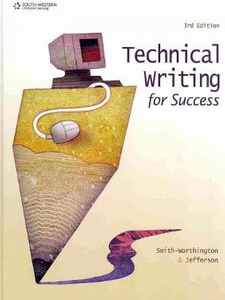Word Partnerships & Collocations : Grammar and Spelling Tips
Definition
In general, collocation is placing words together in a determined order. Collocations are thus the relationship between two words or groups of words that often go together and form a partnership. Two or more words become glued together implying a proper order which make it easy for speakers of L1 to predict what comes next once they have heard the first one. Collocations are learnt through large amounts of reading input. It involves the choice of the right words in the right order. Personally I term «collocations» or «word partnerships» a Catholic wedding because there is no divorce. We don’t have any rules as to why certain words go together or behave that way. There are even no explanations either. As in real life we need to find the right partner otherwise life is hell. I hope linguistics will provide some help one day as they are sometimes annoying because they are unpredictable for a lot of learners of English. On the other hand collocations are like making predictions i.e. projecting forward to what we are about to read or to say. This contrasts with memory when our mind refers back to what we have already read or said. May be that’s why collocations exist. It has to do with memory and predictions i.e. past and future. On the Internet, this term (often spelt «co-location») is used to mean the provision of space for a customer’s telecommunications equipment on the service provider’s premises.
Types of collocations and labelling
Partnerships or collocations are of different types. Sometimes other names are given for grammatical reasons: idioms, compound adjectives: Off-peak, compound nouns (noun + noun: sunglasses, baby-sitter (verb + preposition): turnover, cutback), Phrasal verbs: give up. There are also other partnerships which people label binomials: rough and ready, sooner or later, odds and ends, by and large, done and dusted. There are sometimes even trinomials. Collocation data shows that the mutual information score for the words “heavy» and “smoker»‘ is much higher than the score “strong» and “smoker».
This type of labelling is unfortunately not very useful. Such words no matter what parts of speech they are ought to be labelled «word partnerships» or «collocations». As the word collocation is nothing but made up of two parts: «co» meaning «with» and «location» i.e. occur in the same place. But grammar and vocabulary labelling as with other phenomena in life are often confusing or even misleading.
Collocation clash
There is a collocation clash when words are placed together which should not occur together, according to the rules or usage of a particular language. Languages have their own systems and concepts and collocations are part of that individual system. A collocation clash occurs when there is some semantic or pragmatic incompatibility between the words. Consequently it is important to raise awareness of finding the right partner and that a right partner in one language doesn’t necessarily mean it can be applied to another even if they are genetically related. Translators too need to be aware of these linguistic partnerships and clashes.
The following are typically collocation clashes in English but could be the right partners in other languages:
She is making holiday (going on holiday, spending holiday).
She is getting a baby (having a baby).
Collocation clashes sometimes occur in English Bible versions:
ISV Luke 21.15 «for I will give you speech and wisdom»: It is appropriate in English to collocate «give» and «wisdom». But in English the verb «give» does not collocate with the noun object «speech». To properly express the meaning of «give speech», a translator needs to find a synonym for «speech», which will collocate properly, according to English grammar («give» and «words», a synonym for «speech», collocate for some speakers of English, and this happens to be the collocation used in the NIV, TEV, GW, and NRSV).
Lexical approach
Almost all good dictionaries give collocations. There are also dictionaries of collocations and Word Partnerships. The Lexical Approach focuses on lexis and therefore collocation rather than the more traditional grammar first. Learning collocations leads to an increase in written and spoken fluency.
ENGLISH VOCABULARY IN USE PRE INTERMEDIATE
UNIT 74 WORD PARTNERS
|
A |
What do we mean by word partners? If you want to use a word naturally, you often need to know other I spent time in Paris. (NOT I We have children. (NOT We I made a mistake. (NOT I It was a serious injury. (also a serious illness) It’s quite likely that we’ll stay here. [we’ll probably stay It depends on my parents. (NOT It depends
|
|||
|
B |
Verbs and There are Pavel told me a joke but I can’t remember it. [told me a funny story] I need to lose weight. [become less heavy; opp put on weight] The doctor It’s very We won the My They fell in love and got married. Now |
|||
|
C |
Adjectives Many We’ve got a large number of students/tourists I will need a There’s a wide choice of food available. (opp a limited/narrow choice) Sergio has a wide vocabulary in English. (opp a limited vocabulary) It’s only a Her family is We went to a There was heavy traffic on the motorway going |
|||
|
D |
Adverbs The I’m She’s It’s Ava |
EXERCISES
|
74.1 |
Correct the mistakes. 1 Why does she 2 My sister got a baby last 3 I’m sorry I’m late; I lost 4 There was an accident and 5 I don’t know if I can come 6 We passed three days in 7 I wouldn’t like to try and 8 My sister is waiting for a 9 Axel said me a very funny 10 She gave us a big amount |
|
74.2 |
Complete the My mum went to see the |
|
74.3 |
Replace big or little with a 1 You won’t need a big 2 Why are they making such a 3 I’ve got quite a big 4 There is only a little 5 We had a very big number 6 I think the event had big 7 Isabel only has a little |
|
74.3 |
Complete the |
|
74.5 |
|
ANSWER KEY
жизненно важный
опоздать на автобус
успеть на автобус
серьезная травма
глубоко разочарованый
завести машину
задуматься о появлении первого ребенка
скучать по человеку
пропустить урок
рассказать историю
рассказать анекдот
рассказать правду
сесть в автобус
выходить из автобуса
терять время понапрасну
тратить деньги зря
безалкогольный напиток
мягкий голос
громкий голос
сильный акцент
легкий акцент
крепкий кофе
слабый кофе
сухое вино
сладкое вино
сухая погода
влажная погода
интенсивное движение
сильный дождь
заядлый курильщик
тяжёлая работа
трудный вопрос
большой успех
великолепное время
I’m terribly sorry to bother you.
Мне ужасно жаль беспокоить вас.
to be well aware of the problem
быть в курсе проблемы
крепко спать
полностью проснуться
Some words are frequently used with a key business word.
Look at the words below which can be use with the word «sales», for example: sales potential, sales strategy, sales team:
team
campaign
strategy
forecast
potential
launch
figures
target
Some of these «word partnerships» can be used to fill the gaps in the sentences below.
Please fill in the gaps. Then make some sentences of your own to help you to remember the partnerships.
| 1. | The company is planning to launch an important sales to promote their latest product. | |
| 2. | The sales for the last quarter were very encouraging and we made a substantial profit. | |
| 3. | The sales consists of the sales director, his assistant and ten sales representatives. | |
| 4. | At the moment, we are conducting market research to find out the product’s sales in Germany. | |
| 5. | The sales director is confident of achieving the sales set last January. |
Word pairs
A lot of business words are frequently used in combination with another word. It is useful to learn such combinations.
Can you match the words in column A with the words in column B?
| A | B | ||
| 1. | Profit | ||
| 2. | Advertising | ||
| 3. | Market | ||
| 4. | Product | ||
| 5. | Head | ||
| 6. | Subsidiary | ||
Recommended textbook solutions
The Language of Composition: Reading, Writing, Rhetoric
2nd Edition•ISBN: 9780312676506Lawrence Scanlon, Renee H. Shea, Robin Dissin Aufses
661 solutions
Technical Writing for Success
3rd Edition•ISBN: 9781111445072Darlene Smith-Worthington, Sue Jefferson
468 solutions
Literature and Composition: Reading, Writing,Thinking
1st Edition•ISBN: 9780312388065Carol Jago, Lawrence Scanlon, Renee H. Shea, Robin Dissin Aufses
1,697 solutions
Edge Reading, Writing and Language: Level C
ISBN: 9781285439594David W. Moore, Deborah Short, Michael W. Smith
304 solutions










































